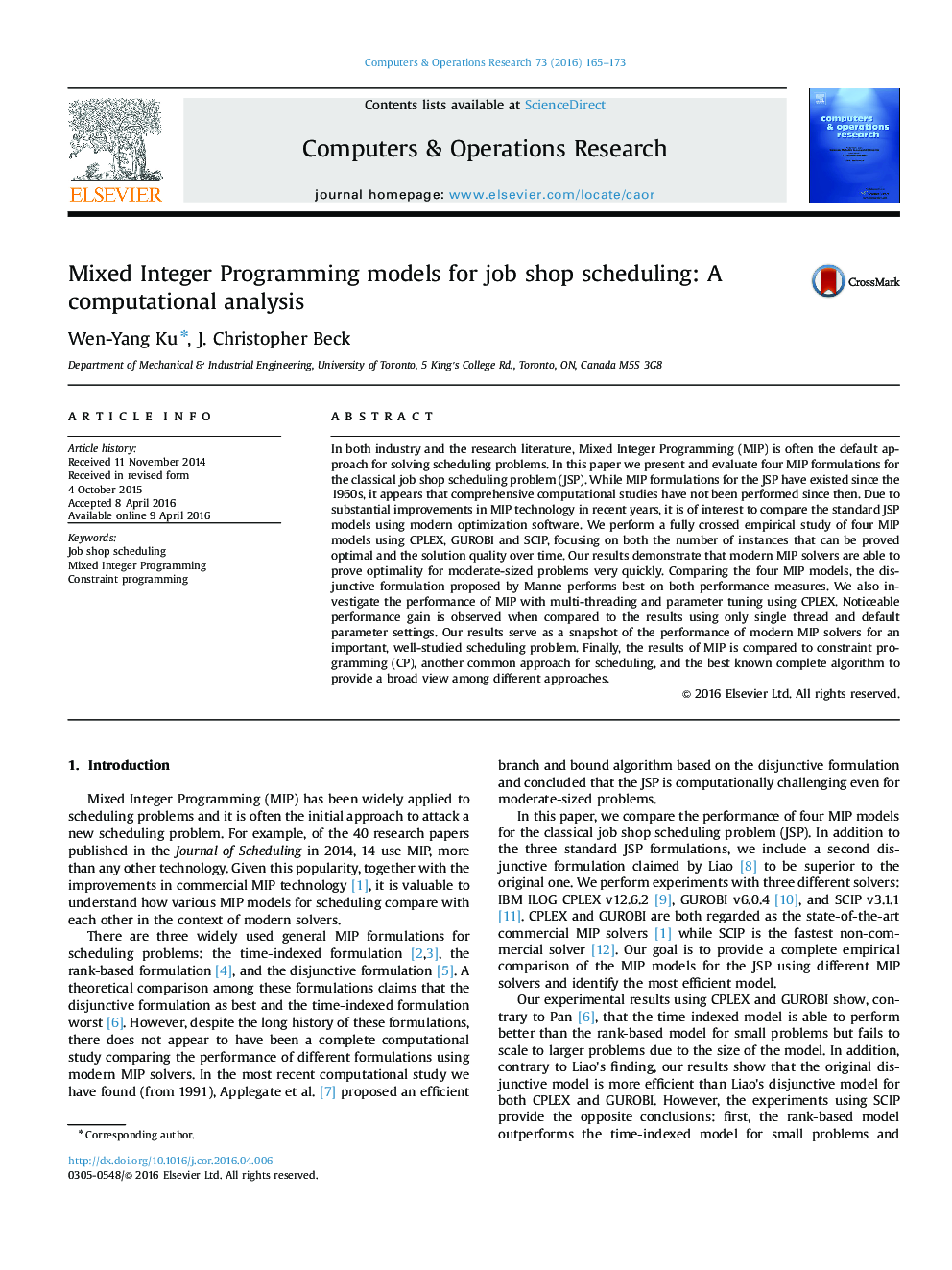| Article ID | Journal | Published Year | Pages | File Type |
|---|---|---|---|---|
| 475413 | Computers & Operations Research | 2016 | 9 Pages |
Abstract
In both industry and the research literature, Mixed Integer Programming (MIP) is often the default approach for solving scheduling problems. In this paper we present and evaluate four MIP formulations for the classical job shop scheduling problem (JSP). While MIP formulations for the JSP have existed since the 1960s, it appears that comprehensive computational studies have not been performed since then. Due to substantial improvements in MIP technology in recent years, it is of interest to compare the standard JSP models using modern optimization software. We perform a fully crossed empirical study of four MIP models using CPLEX, GUROBI and SCIP, focusing on both the number of instances that can be proved optimal and the solution quality over time. Our results demonstrate that modern MIP solvers are able to prove optimality for moderate-sized problems very quickly. Comparing the four MIP models, the disjunctive formulation proposed by Manne performs best on both performance measures. We also investigate the performance of MIP with multi-threading and parameter tuning using CPLEX. Noticeable performance gain is observed when compared to the results using only single thread and default parameter settings. Our results serve as a snapshot of the performance of modern MIP solvers for an important, well-studied scheduling problem. Finally, the results of MIP is compared to constraint programming (CP), another common approach for scheduling, and the best known complete algorithm to provide a broad view among different approaches.
Related Topics
Physical Sciences and Engineering
Computer Science
Computer Science (General)
Authors
Wen-Yang Ku, J. Christopher Beck,
